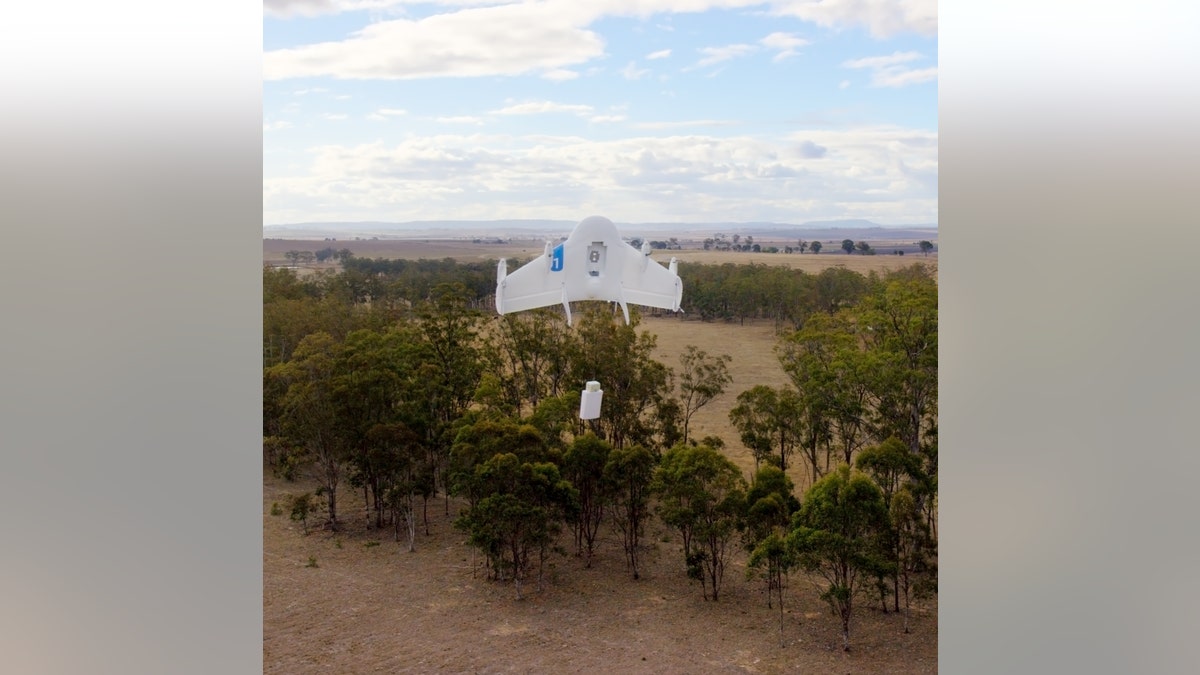
(Google)
Google’s entry into the drone space with its Project Wing initiative is good news for the broader drone industry, according to an expert in the technology.
Missy Cummings, associate professor in the Department of Mechanical Engineering and Materials Science at Duke University, notes that Google is up against Amazon, another corporate heavyweight with ambitious drone plans.
“I think the most important part of Google's announcement was that it is basically going to give Amazon a run for their money and this kind of competition is great for the industry,” she said, in an email to FoxNews.com. Google’s drone strategy will also be critical in pushing the Federal Aviation Administration to establish a viable commercial airspace structure for drones, added Cummings, who is also director of Duke’s Humans and Autonomy Laboratory.
An audit report recently warned that the FAA is “significantly behind schedule” in its attempt to meet Congress’ September 2015 deadline for integrating commercial drones into U.S. airspace. The report by the Department of Transportation’s Inspector General warns that the FAA will miss the deadline, citing unresolved technological, regulatory, and privacy issues.
A number of drone manufacturers have also voiced their concern to FoxNews.com about the FAA’s progress around commercial drones.
Part of Google’s Project X initiative to develop new technologies, Project Wing uses “self-flying vehicles” to deliver goods, according to the Mountain View, Calif.-based tech giant. The company’s Project Wing team has recently been testing the technology in Australia, using the drone in delivery flights to farmers. Deliveries to the two farmers in the Australian state of Queensland included candy bars, dog treats, cattle vaccines, water, and radios.
Cummings, however, told FoxNews.com that Google is hardly blazing a drone trail. Silicon Valley-based Matternet already makes medical deliveries to remote locations around the world, she said, and also cited the ambitious drone plan announced last year by Amazon CEO Jeff Bezos.
“Amazon was the first big company to announce the drone delivery business model,” she said. “And honestly, the drone field is overcrowded with ‘innovative’ new drones, with new ones coming on line every day, so I have yet to see anything from Google in terms of the actual drone technology that stands above the rest.”
Resembling a miniature plane, the fixed-wing drone is powered by rotors and has a wingspan of 5-feet. The device hovers at a height between 131 and 196 feet when making deliveries. Google says that this keeps the drone well above common obstacles such as houses and trees.
The company says that Project Wing’s focus for the next year will be on precise navigation, noise reduction, and teaching the drones to avoid each other.
Google acknowledges that it will take years to develop a service with multiple drones making multiple deliveries a day. The planes will be designed to fly a pre-programmed route at the touch of a button, and, over time, the technology will develop into different sizes and shapes.
The company’s tests in Australia have attracted plenty of attention, although Cummings notes that the first firm to announce any drone-based delivery service was Australian firm Zookal. “It has long been known that Australia is more drone friendly and many companies, both big and small, defense and non-defense, have been using Australian airspace to do drone testing,” she said. “In fact, I warned the Senate Commerce Committee last January that the U.S. was already losing important ground in this area to other countries because of the FAA's archaic policies.”
Follow James Rogers on Twitter @jamesjrogers








































